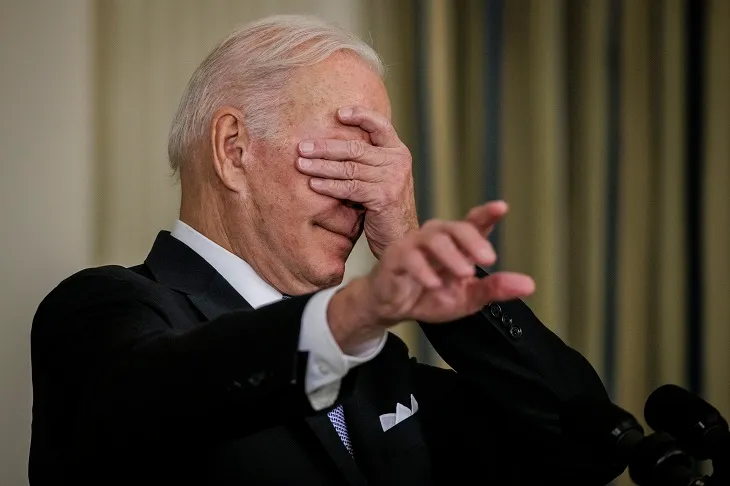Table of Contents
Don Brash
Some months ago, this blog reprinted the final chapter of my autobiography, Incredible Luck. The chapter was headed “Does democracy have a future?” and dealt with the inherent temptation for elected governments to bribe voters with their own money.
I quoted the great 19th century French historian Alexis de Tocqueville, who once remarked that “the American republic will endure until the day Congress discovers it can bribe the public with the public’s money”.
I quoted Alexander Tytler, a Scottish history professor at the University of Edinburgh in the late 18th century, who is alleged to have said, in commenting on the fall of the Athenian Republic some 2000 years earlier:
A democracy is always temporary in nature; it simply cannot exist as a permanent form of government. A democracy will continue to exist up until the time that voters discover that they can vote themselves generous gifts from the public treasury. From that moment on, the majority always votes for the candidates who promise the most benefits from the public treasury, with the result that every democracy will finally collapse due to loose fiscal policy, which is always followed by a dictatorship.
In New Zealand, that is a risk, with both major parties refusing to recognize the fiscal implications of the ageing of our population, despite the Treasury predicting that the ratio of government debt to GDP will reach some 200% by 2060 unless some policy changes are made. But our fiscal situation is relatively benign compared to the situation facing many other countries, thanks in part at least to the Fiscal Responsibility Act passed in 1994 (thank you Ruth Richardson) requiring governments to spell out the longer-term implications of current decisions on government spending. Our democracy is more immediately at risk from the insidious distortions of what the Treaty of Waitangi actually said.
But the United States seems about to demonstrate the truth of what de Tocqueville and Tytler predicted, not that the US is likely to become a dictatorship in the immediate future but that it seems close to the brink of proving the inability of elected legislatures to take responsible fiscal decisions.
All those who take even a passing interest in international affairs will be aware that the US Treasury Secretary, Janet Yellen, has recently warned that by the beginning of June the US Government will be unable to pay its bills – unable to meet interest on its existing debt, for example – unless Congress agrees to increase the legal limit on the government’s debt. That limit currently stands at US$31.4 trillion, comfortably exceeding US GDP.
Negotiations between the White House and Congress got underway this week with a view to increasing that limit. The stakes are obviously very high: failure to increase the debt ceiling by about the end of this month would push the US into a situation where it could no longer service its existing debt – a default which would be the first in US history. I am clearly in no position to judge the likelihood of the US avoiding default, and most observers seem to think that, because the consequences of default would be so catastrophic for the US economy – and indeed for the world economy – somehow default will be avoided. But the risk of default, given the intransigence of all those involved, is certainly not negligible.
But in many ways, while fixing the immediate potential crisis by increasing the debt ceiling would be extremely desirable, that comes a very long way short of solving the basic problem. In my earlier article, I quoted Professor Larry Kotlikoff, professor of economics at Boston University. When he visited New Zealand in 2012, he noted that the US government debt had reached US$16 trillion but he argued that that was not the correct measure of the indebtedness of the US federal government. He pointed out that the “real” US government debt is correctly measured by comparing the present value of future federal government spending with the present value of future federal government tax revenues at current tax rates. That difference was, in 2012, over US$200 trillion; he argued that the US would not be bankrupt in fifty years’ time, the US government was bankrupt already!
Of course, he would have accepted that the US could avoid bankruptcy by sharply cutting expenditure or sharply increasing taxes. But what we have seen since he made that prediction in 2012 is a major expansion of federal government spending (particularly under President Biden) and a reduction in federal tax rates (particularly under President Trump). Despite the fact that the US economy is running close to its maximum capacity, with unemployment near record lows, the federal government is continuing to run a large fiscal deficit, with most predictions suggesting that that deficit is likely to extend as far as the eye can see.
The US is not the only country which seems unable to get its fiscal house in order – and France provides a graphic illustration of how difficult it is to restrain the growth in spending on government pensions by increasing the age of eligibility for that pension by a modest two years, from 62 to 64.
But for many decades the US political commitment to meeting the interest on its government debt has been unquestioned. It has been the bedrock of the international economy. We may be about to see for how much longer that faith is justified.









